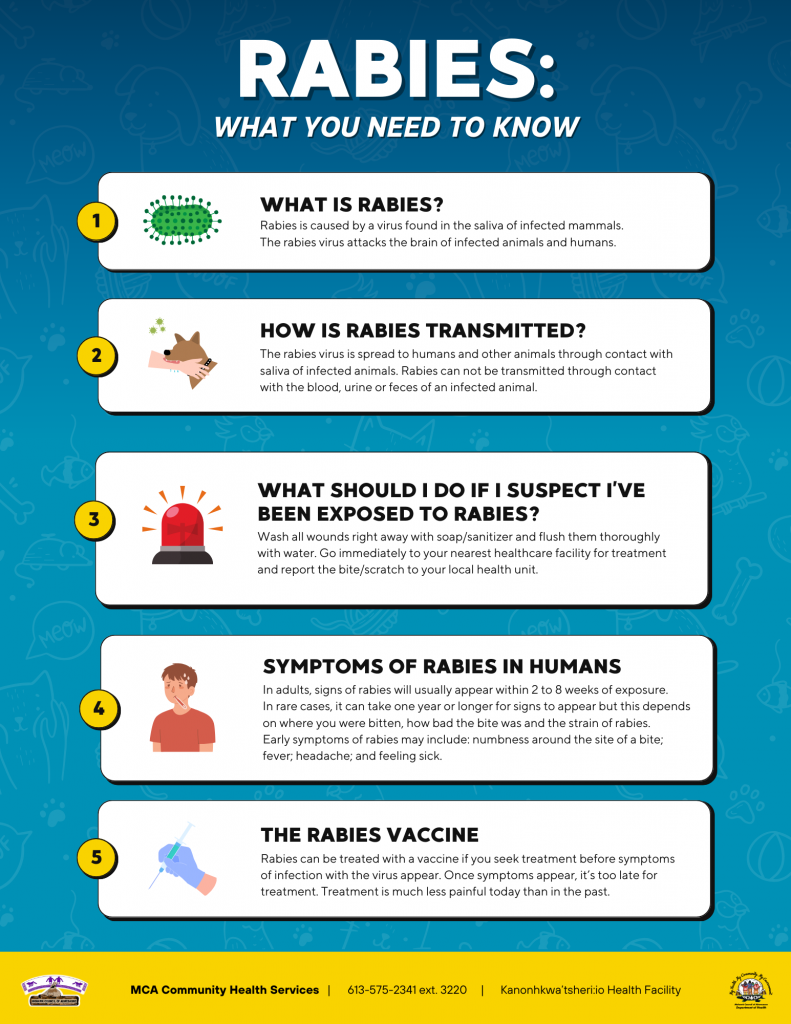IPAC PROVIDES INFORMATION FOR WORLD RABIES DAY
The Mohawk Council of Akwesasne’s Infection Prevention & Control Program (IPAC) is providing the community with information for World Rabies Day. World Rabies Day is held on September 28th and is a day to raise awareness about preventing the spread of rabies. It also observes the passing of Louis Pasteur, who was the scientist who created the first rabies vaccine.
World Rabies Day provides information on the various ways in which rabies can be spread and provides information on how to prevent it.
The following information is provided by Health Canada:
WHAT IS RABIES?
Rabies is a virus found in the saliva of infected mammals. The rabies virus attacks the brain of infected animals and humans.
HOW IS RABIES TRANSMITTED?
The rabies virus is spread to humans and other animals through contact with the saliva of infected animals, most commonly through bites. Rabies can not be transmitted through contact with the blood, urine, or faces of an infected animal.
WHAT SHOULD I DO IF I SUSPECT I’VE BEEN EXPOSED TO RABIES?
Wash all wounds right away with soap and sanitizer, and flush thoroughly with water. After washing any wounds or scratches, go immediately to your nearest emergency room for treatment.
SYMPTOMS OF RABIES IN HUMANS
In adults, signs of rabies will usually appear within 2-8 weeks of exposure. In rare cases, it can take a year or longer for signs to appear, depending on where you were bitten and how severe the bite, as well as the strain of rabies. Early symptoms of rabies may include: numbness around the site of the bite, fever, headache, and feeling sick.
RABIES VACCINE
Rabies can be treated with a vaccine if you seek treatment before symptoms of infection with the virus appear. Once symptoms appear, it’s too late for treatment. Treatment is much less painful today than it was in the past.
For more information on the rabies virus, or upcoming rabies vaccine clinics for pets, please contact the Infection Prevention & Control Program at 613-575-2341 ext. 3220.

